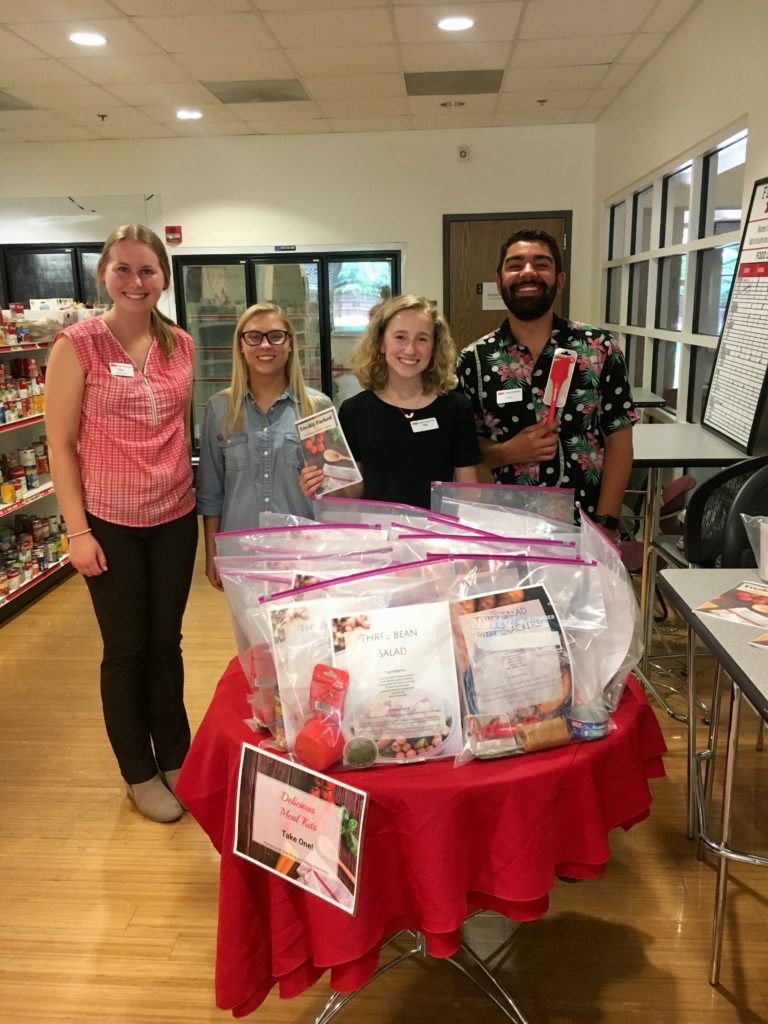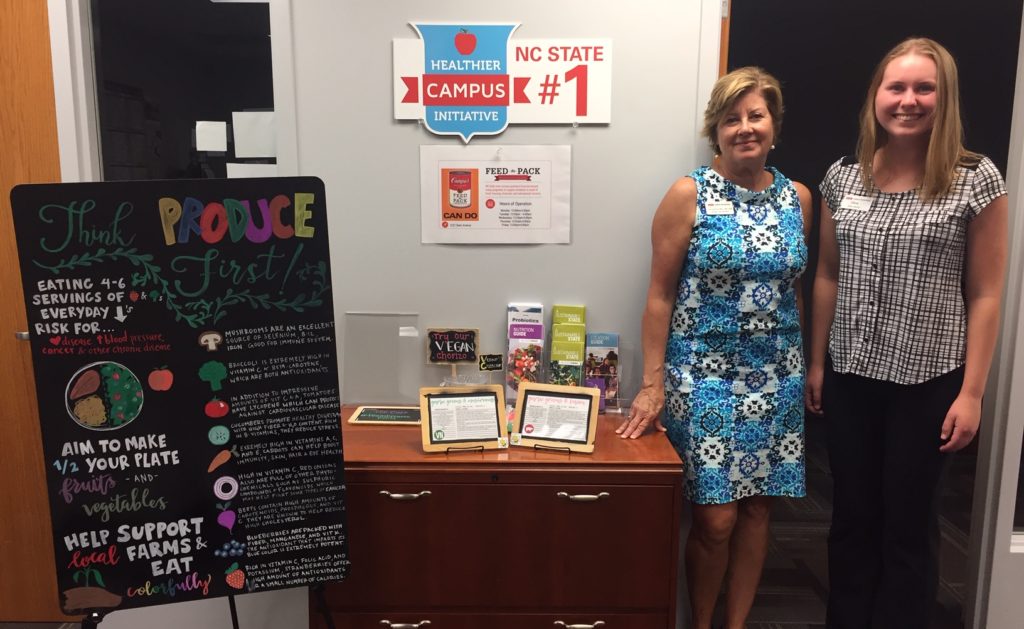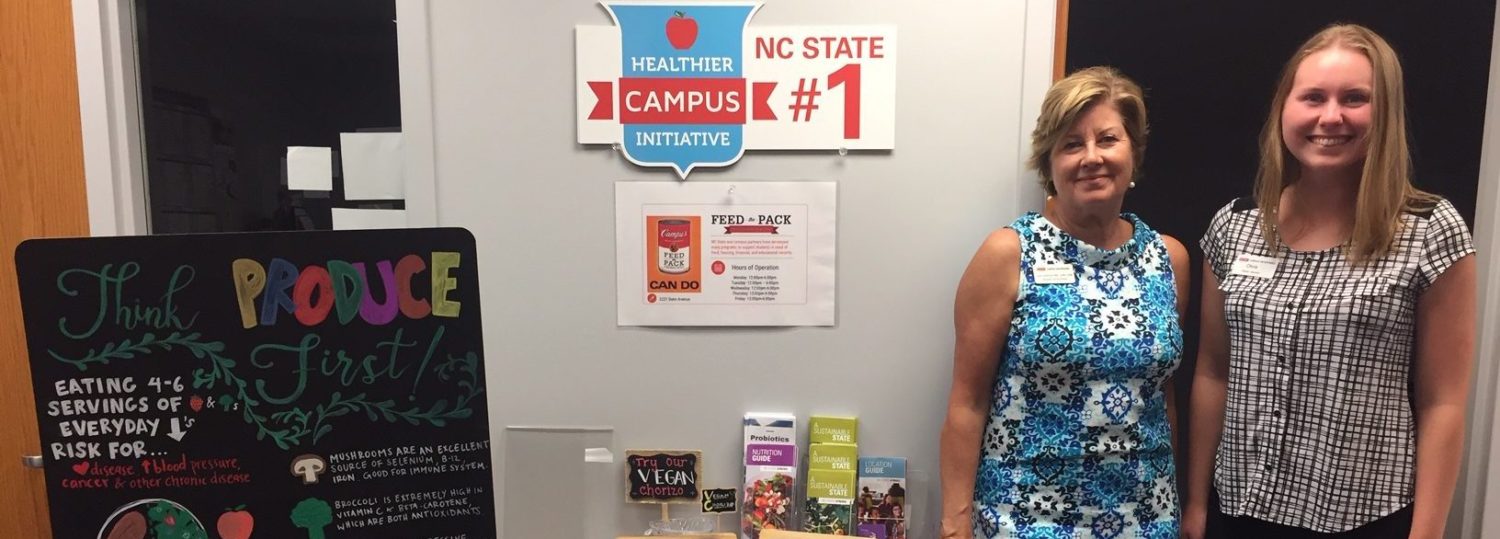
Although it may not always be apparent, many college students struggle with food insecurity on a regular basis. According to a survey conducted by an NC State researcher in 2017, approximately 14% of students reported “low” to “very low” food security within a given month. However, NC State Dining is making strides to combat food insecurity and provide additional resources for those affected.
NC State Dining and the Division of Academic and Student Affairs (DASA) have worked alongside each other to create Pack Essentials, a means to meeting students’ needs for housing, food, and financial services. To address food insecurity specifically, there are on-campus resources such as Feed the Pack Food Pantry, PACK meal share, and even NC State Dining employment opportunities.
Shawn Hoch, acting senior director of hospitality services, says that he wants students to have all the support they need, as he grew up in a home where food was sometimes scarce. When Mary Haskett, professor of psychology, and Sarah Wright, assistant director for TRIO, approached Hoch about becoming a member of the DASA Food and Housing Steering Committee (which would eventually become Pack Essentials), he was thrilled to join their team.

Hoch helped expand the space for the food pantry by offering the Quad Commons C-store to DASA in August 2018. Now with a more prominent location on campus, the food pantry has greater room to expand in the future. Due to the larger space and the ability to refrigerate foods, the food pantry has potential to reach a larger audience with a greater selection of food. “The pantry is open to all students, faculty and staff,” Hoch said. “We hope the more prominent location will help reduce the stigma around asking for help, and ensure that we can help those in our community thrive while supporting academic success.”
As part of the PACK meal share program, Hoch and his Dining colleagues partnered with student government to determine if students could donate unused guest meal swipes without raising the cost of the meal plan. Now, each semester, Dining receives roughly 1,500 guest swipes that are then given to DASA to distribute to students in need.
Lisa Eberhart, director of nutrition and wellness, and Olivia Chadwick, allergen specialist, work closely with the food pantry to make “meal kits” out of over-donated food. Meal kits are a fairly new addition to the food pantry, and they help teach people new recipes. Each kit contains a recipe card, the exact amount of ingredients to make the dish, and any necessary utensils, like teaspoons. Eberhart and Chadwick have assembled meal kits with recipes for five bean chili, green bean casserole, three bean salad and tuna salad. The recipes are chosen in conjunction with the time of year so that people can enjoy the recipes during the appropriate season.

Eberhart and Chadwick also host cooking demonstrations across campus, and they will soon have a new teaching kitchen as part of the Carmichael Gym renovation, set to open in fall 2020. By teaching people how to cook, they hope that students will gain life skills and improve their knowledge of nutrition.
Eberhart dreams of making the cooking classes part of health exercise studies fitness classes, as she believes it is an integral part of lifestyle and wellness. Going forward, she thinks it will be important to equip students with financial skills and resources, as she proposes that students can further fight food insecurity by understanding how to handle their money wisely.
There are many ways to get involved with the food insecurity efforts happening at NC State. Specific opportunities include:
- Donating food to Feed the Pack Food Pantry
- Volunteering with Feed the Pack Food Pantry
- Contributing to the Student Emergency Fund
- Supporting the PACK meal share program
